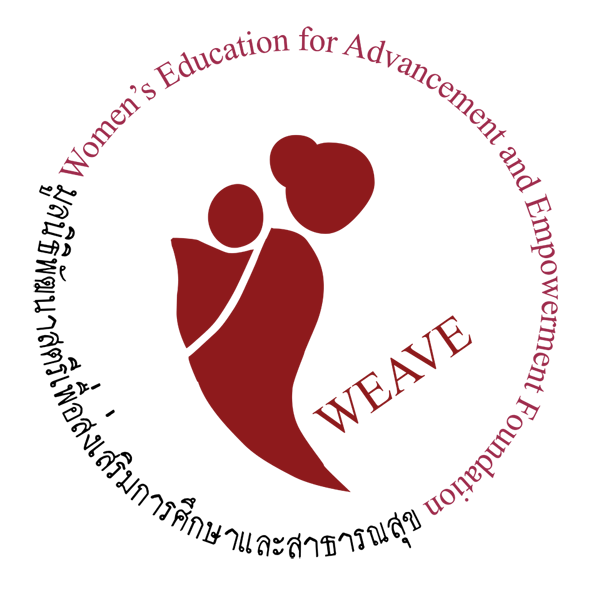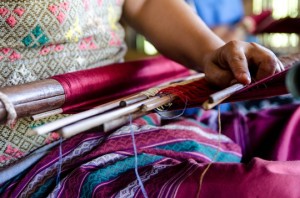Trying to build a relationship with community members made us realize how big a part of trust is built on the language. Some form of communication is possible even without speaking, and smiles and gestures constitute big help. However, a few minutes with an interpreter are worth the same as several hours without an interpreter. We are strangers invading a community, a foreign element, and bringing some form of change; we cannot expect the villagers to trust us if we cannot even joke with them.Without an interpreter, even arranging a meeting or a dinner requires a huge effort and a big amount of time from both sides; it is not easy at all. Also, we will never be able to understand when we’re being a burden or when we’re being an appreciated presence. I tried to put it the other way round, and imagine how it would be if a bunch of Asians came to my village in Italy claiming to help, taking pictures of places and people, and expecting interest and invitations for dinner: it would not work that well, I assume. They would be the object of curiosity and gossip, but barely anyone would really trust them.
However, we are lucky enough to be here with a very good organization and with a very good project coordinator. Simply saying “P’Saeng” opens many doors to us. Sister (P’) Saeng is an amazing woman who has been working for WEAVE for some years now, three of which with the women’s group in MSP,T. Her presence here has been crucial at the beginning, as we were introduced to the women, the village leader, and some other villagers. This helped in building some sort of trust, and in showing that, after all, we are quite harmless. She translated our jokes, our thoughts, and told us how to behave in specific situations. Thanks to her, some villagers are taking care of us, even though they might be too shy or embarrassed (or just too tired) to really “hang out” with us: they know how tiring communication without a common language can be.
Furthermore, P’Saeng told us that it took her one year before the villagers started trusting her, yet it is still an ongoing process. Even for her, communication sometimes becomes an issue: she is Shan, whereas the villagers are Karen, and Thai does not always serve the purpose. However, she learned how to manage it, and she is now highly respected by the villagers. When she walks around, everybody stops and says hello, and I wonder how she can manage to remember all faces. This made us understand that there is so much more apart from language when it comes to community integration; it is a long, challenging and difficult practice, which requires a steady effort to keep trust alive.
P’Saeng knows really well how things work in MSP,T. She knows when the most suitable time is when the women’s group can meet, she makes jokes, and she sits with them and arranges things in a manner that the women will not feel imposed upon. She is aware of the fact that the community has been existing for decades without WEAVE, and understands the importance of making the intervention as gentle and discrete as possible, still being effective and having an impact. WEAVE tries to intervene from within the community, and it plays within the frames of what already exists. Existing networks, knowledge and skills are simply being enhanced, without being drastically changed.
We could see how P’Saeng acts silently, calmly, without making a big fuss upon her arrival, and builds long-term relationships with and among the villagers. She slowly got to find out when each woman has time to work for the organization; she knows that their work in the fields or on their farms is seasonal, and that the amount of time they can devote to weaving, sowing or embroidering depends on the time of the year. She knows that WEAVE is not their main source of income, but she also knows how the additional money they get from the organization strongly enhances their financial capacity when it comes to providing the family with decent food or their children with a good education. WEAVE is aware of the fact that forming weaving/sowing/embroidery groups improves the quality of women’s lives, as they get a chance to meet up, chat, share responsibilities, enhance their skills, and work together, still acting within an existing framework. P’Saeng knows all of this, and she becomes part of the community when she is in MSP,T; she eats with the villagers, jokes, waits for and with them, and tries her best to make them trust us.
WEAVE is also aware of the importance of having good relations with the school staff, and dinner-meetings are organized in order to discuss both serious and less serious issues. Keeping networks alive and building up new ones is not a work to be done only at the office. It is work, but it is pleasant, and in a food-loving culture like the South-Asian one dinners are an optimum occasion to build relations. I think the really nice, relaxed relationship we have now with the teachers and the principal is mainly due to that time spent together at the very beginning, having P’Saeng there to mediate and guide us in the first steps of our work-life.
As a future development worker, I am learning much in terms of interventions in rural communities. I read a lot about respecting and valorizing local knowledge, and here I can see how it can be profitably maintained, used and enhanced thanks to small-scale interventions. I studied much about sustainability, and here I can see how improving skills and increasing networks at community-level will have a long-term, sustainable impact. However, what I got to discover and appreciate the most is the silent, slow and friendly way the project is being carried out from within. NGOs should not be loud and assertive, building up unsustainable infrastructures, and then leaving the communities on their own. They should not require anything from the communities, but rather integrate, find out about them, and then ask what is needed, how and when that need can be addressed. And be willing to accept that what they want to bring is not needed, after all. They should not be strangers; they should be part of the community. They should not be a burden; they should be a relief. Knowing the community translates into having the power to effect a positive change, but this change should be slow and acceptable, not sudden and imposing.
WEAVE is being a silent and discrete presence, acting slowly on a small scale, but having a far greater impact than other organizations hoping to change the world in the blink of an eye, requiring and imposing their interventions. P’Saeng is being great guidance in this, and she is teaching me much more than books ever did. Thank you, Sister!
Published on July 3rd, 2014 in http://maeseepeetai.blogspot.com/

